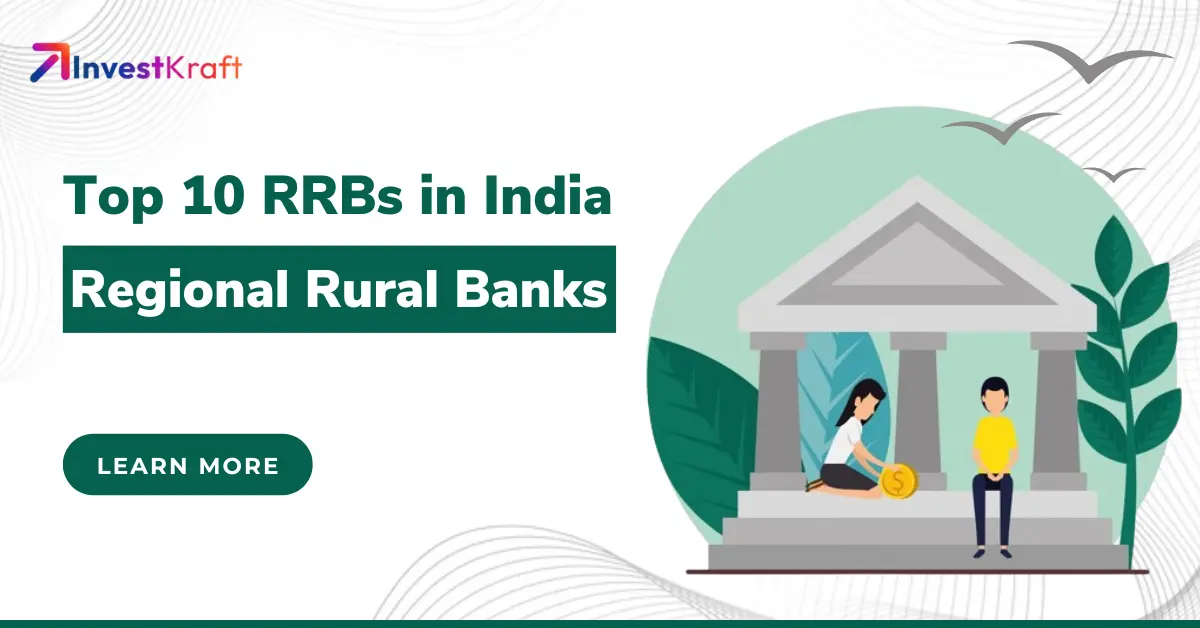The Complete Guide to Home Loans in India

The Complete Guide to Home Loans in India, Owning a home is a dream for many in India, and a home loan often turns this dream into a reality. A home loan is a financial instrument that enables individuals to purchase or construct a residential property. Offered by various banks and financial institutions, home loans provide borrowers with a substantial amount of capital, typically covering a significant portion of the property's cost.
These loans come with specific interest rates and repayment tenures, allowing borrowers to repay the amount in equated monthly instalments (EMIs). The property itself serves as collateral for the loan. Home loans play a crucial role in facilitating widespread homeownership by making property acquisition more affordable for a broader segment of the population.
What Is A Home Loan?
A Home Loan, in other words, known as a Housing Loan, is a financial product designed to help individuals acquire or own a home either through purchase or through construction. A loan borrower, referred to commonly as a buyer, borrows a desired amount from a financial institution to purchase a residential property. This could either be a bank, an NBFC or even a housing finance company, that works under the guidelines issued by the Reserve Bank of India issued from time to time.
However, Investkraft, the best home loan provider company in India, is known to be the most appropriate choice for those who are looking for easy home loan services.
How Do Home Loans Work?
Prerequisites Before applying for a home loan, the individual mandates to keep certain essential documents such as identity and address proof, a statement pertaining to the individual's annual income certified either by the employer or any other valid document that justifies assured regular earnings of the individual such as an IT Return.
The person who proposes to acquire the property through a loan must also ensure the correctness of house documents such as a clear sale deed, encumbrance certificates obtained from the concerned Registrar's office, and other relevant document such as panchayat/ municipal/ corporation approvals for construction, clear land conversion documents etc. On possession of these documents, the saga of a home loan begins with the buyer approaching for a home loan with a chosen financial institution.
Loan Approval Procedure
Upon approaching an institute for a home loan, the concerned institute directs the individual to submit a request for a home loan through an application. Once the application is submitted, the financial institution assesses the borrower's eligibility based on factors such as income, credit history, and CIBIL Score.
Prior to the approval, the lender, in other words, the institute ascertains the property valuation to ensure whether its worth aligns with the requested loan amount. This is the most crucial step as it is through this assessment; that the lender understands the threat element associated with the loan. Upon ensuring the transparency of the property's documents, and its market value, the loan amount and rate of interest are determined.
Once the property clears the valuation credentials, and the borrower meets the eligibility criteria, the lender approves and issues a sanction letter pertaining to the approved loan amount, and interest rate. It is essential for the lender to calculate the loan amount that can be comfortably repaid. This involves assessing monthly income, existing financial commitments, and the impact of the loan on the overall budget repayment procedures such as EMIs and other related terms and conditions.
After the acceptance of terms and conditions set by the lender, the borrower completes the required documentation, including the creation of a legal mortgage in favour of the lender. This involves the submission of property documents to the lender upon registration, and other requisites such as post-dated cheques to ensure hassle-free regular repayment. After the legal formalities are complete, the lender disburses the loan amount either in full or in instalments, depending on the construction progress in the case of under-construction properties.
Loan repayment is to be executed through equated monthly instalments (EMIs), which consist of both principal and interest components. The repayment period, or tenure, is fixed on a plethora of factors such as the chronological age of the borrower, annual earnings, repayment ability, years of productive service left, etc., It can vary from 10 to 30 years.
Home loans can either have fixed or floating interest rates. Fixed rates remain constant throughout the loan tenure, whereas floating rates fluctuate based on market conditions. The choice between the two depends on the borrower's risk appetite and market expectations.
Eligibility Criteria For Home Loans For First-Time Buyers
If you are a first-time homebuyer and want to apply for a home loan, you should be aware of the following basic eligibility criteria:
- Age: Basically, the borrower should be between 21 and 58 years old.
- Income Stability: Lenders prefer applicants with a stable income. Salaried individuals may need to provide salary slips, whereas self-employed individuals may need to submit Form -16/income tax returns.
- Credit Score: A good credit score enhances eligibility. Lenders assess the borrower's creditworthiness based on their credit history as well as their credit score.
- Employment Stability: Lenders often prefer borrowers with a consistent employment history.
Issues To Be Understood By The Borrower Before Applying For Home Loan
Before applying for a home loan, prospective buyers should research the real estate market, understand property prices, and create a budget that considers additional costs such as registration fees, stamp duty, and maintenance charges.
For first-time homebuyers, it's essential to conduct thorough research, assess eligibility criteria, and be aware of potential challenges. Navigating the landscape of home loans in India requires careful consideration and understanding of the process. With the right knowledge and preparation, a housing loan can be obtained in time.
Before accepting the approval, the borrower must be aware of hidden costs such as processing fees, administrative charges, and legal fees as they significantly impact the overall cost of acquiring a home loan. Also, the person must make sure about the terms related to prepayment and foreclosure as many institutes try to veil the prepayment charges, and the borrower should be aware of these costs before deciding to repay the loan ahead of schedule.
Lenders often recommend or mandate insurance products like home loan insurance and property insurance. These policies protect the borrower and the property in the event of unforeseen circumstances such as accidents, disability, or natural disasters.
Most institutions nowadays offer floating interest rates, as prevalent market conditions play a significant role. Borrowers should stay informed about economic trends and interest rate movements, as these can impact the cost of their home loan. In addition to the details said above a first-time buyer of a house must:
- Understand his/her Financial Situation including current income, expenses, and credit score. A higher credit score can often lead to better loan terms.
- He/She must establish a budget to determine how much he/she can afford to borrow and repay each month.
- He/She must save for a down payment. A larger down payment can result in lower monthly payments and may improve your loan terms.
- He / She must research loan options by exploring different types of loans, such as fixed-rate mortgages and adjustable-rate mortgages. Understand the pros and cons of each to determine which aligns best with his / her financial goals.
- He/She must obtain pre-approval for a mortgage before house hunting. This shows sellers that you are a serious buyer and can give you a competitive edge in a competitive housing market.
- It is the duty of the borrower to compare lenders in terms of interest rates, fees, and terms. Different lenders may offer different packages, so it's essential to find the one that suits your needs.
- The individual must also consider factors in closing costs associated with buying a home. These can include loan origination fees, appraisal fees, title insurance, and more. Budget for these costs in addition to your down payment.
- It is always better to consult with a mortgage advisor or financial planner as they can provide personalized guidance based on an individual's financial situation and goals.
- A borrower must essentially read and understand loan Documents prior to signing, and should not hesitate to seek clarification.
- Lastly, the borrower must maintain financial stability and avoid making major financial changes, such as changing jobs or taking on new debt, during the loan application process as many lenders prefer stability and consistency in financial situation. Above all the borrower must set aside money for unexpected expenses related to homeownership. Having a contingency fund can help you handle repairs or other unforeseen costs without straining your budget.
Conclusion
Home loans are never easy. But with Investkraft, anyone can apply and get their home loans approved in an easy manner. We are known for our premium home loan services at low-interest rates. We offer you clear terms and conditions and no additional costs. With Investkraft, you don't have to pay a lot of amount while paying the EMIs. Also, our charges are 100% transparent, so we won’t surprise you with any hidden costs during the loan term. So, if you are looking for home loans, then apply at Investkraft.
Verify Phone Number
Related Post

RBI Approved Loan Apps in India 2026: Best Instant & Safe Loan Apps List
Instant loan apps have completely changed how Indians borrow money. Whether you need ₹1,000 ur...
Read more...
How Does the Moratorium Period Act as a Life Raft for Borrowers?
Financial jargon, whether taking a loan or opening a bank account, can be confusing and tricky. Thes...
Read more...
New to Credit? Stop Worrying and Build Your Credit with These Essential Tips
Establishing and maintaining a healthy credit score can seem overwhelming, particularly for new borr...
Read more...
Prime Lending Rate: A Friend or Foe for Borrowers?
When purchasing items on credit, it is common to need a financial investment and many turn to loans...
Read more...
Top 10 Foreign Banks in India 2025
Foreign banks bring crucial international expertise and capital to India’s BFSI industry, benefiting...
Read more...
Top 10 P2P Lending Companies in India 2025
Peer-to-peer lending, or P2P lending, offers a way for individuals to borrow and lend money without...
Read more...
Complete List of Cooperative Banks in India 2025 – Urban & Rural Co-ops Banks
The role of cooperative banks in a rapidly growing nation like India is of crucial importance. The c...
Read more...
Complete List of Regional Rural Banks (RRBs) in India 2025 – Services & Functions Explained
Established on the recommendations of the Narasimhan Working Group in 1975, Regional Rural Banks (RR...
Read more...
Top 10 Small Finance Banks (SFBs) in India 2025
Small Finance Banks aim to empower marginalized groups in society, including small businesses, margi...
Read more...
Top 5 Payment Banks in India 2025
In recent years, India's banking landscape has undergone a significant transformation with the adven...
Read more...Reach out to our Experts if you have any Doubts
Like the best things in life, Consultations @InvestKraft are free
Drop a Mail or give us a Missed Call & Begin your Investment Journey here







